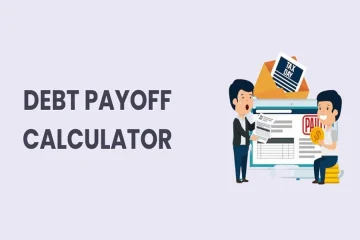Understanding mortgage interest rates and loan terms is helpful for anyone buying a home. These indicators will affect not only how much you pay per month, but the overall cost and what kind of property you can even afford. Understanding how rates and terms interact can help you make savvy money-saving decisions that keep you stress-free for the life of your loan.
So let’s start with the basics…
Know How Interest Rates Work
Interest rates are what you pay when you borrow money for your mortgage. Little discrepancies in rates can translate into big fluctuations in monthly payments and overall interest over time. For instance, a 0.5% discrepancy on say a $300,000 loan could save thousands over the life of the mortgage.
Rates are affected by economic conditions, lender policies and your financial profile. Your credit score, debt-to-income ratio and down payment size may all affect the rate you’re offered. Being aware of these factors can help you get ready and put yourself in a position for optimal terms.
Compare Fixed vs. Adjustable Rates
With a fixed-rate mortgage, the interest rate remains the same for the term of your loan, meaning that you always have predictable monthly payments and can avoid worrying about future increases in rates. They work for buyers looking for stability who won’t likely want to sell their home within a couple years.
Dan Close, Founder and CEO of BuyingHomes, shares, “Adjustable-rate mortgages (ARMs) start with a lower initial rate that adjusts periodically based on market conditions. ARMs could be a good option if you know you will sell or refinance before the rate adjusts, but there is also risk that rates will rise in this same period. Being able to weigh the pros and cons of your financing options is extremely helpful as you select a mortgage that aligns with your overall financial plan.”
Understand Loan Terms
The length of time that you agree to pay off a loan is the term. Standard terms are 15, 20 or 30 years. Shorter terms tend to have higher monthly payments but lower interest costs overall, while longer terms usually offer lower payments with more interest over time.
The term you pick, though, will impact your budgeting, financial flexibility and how much wealth you build over the long haul. For instance, a 15-year mortgage will accumulate equity more quickly and cut interest paid, but could squeeze your monthly budget. Evaluating your finances and goals allows you to choose a length of term that strikes the right balance between affordability and long-term benefit.
Consider Points and Fees
Mortgage points are upfront payments that reduce your interest rate. A point generally equals 1 percent of the loan amount. “Paying points makes sense if you’re going to be in your home long enough for the reduced interest payments to be greater than the upfront cost of the discount point,” Holden adds.
And don’t forget about closing costs, origination fees and other lender fees. Those amounts can greatly affect your upfront costs, thus the impetus to shop around and secure the lowest-cost loan overall. Interest rates and corresponding mortgage rates are very important to the evaluation of your mortgage options.
Factor in Your Credit Profile
The interest rates you receive from lenders is quite affected by your credit score. High scores typically get you lower rates, and low scores can be expensive. Reviewing your credit report ahead of time and taking care of blemishes or boosting your score can enable you to qualify for better terms.
Income stability, current debt and employment history are other financial issues that come into play. Building a solid financial profile before applying can boost the chances of getting great mortgage rates and terms.
Understand How Market Conditions Affect Rates
Mortgage rates are influenced by broader economic trends like inflation, decisions made by the Federal Reserve and the state of the housing market. Keeping tabs on these trends can help you to determine whether it’s a good time to lock in a rate or wait for possible changes, says LJ Tabango, Founder & CEO of Leak Experts USA.
Using an experienced mortgage broker or lender can help you think strategically to time your purchase and weigh options. Knowledge of market conditions enables you to make strategic choices that reduce interest rates and increase affordability.
Understand How Amortization Works
Amortization is the process of paying off a mortgage over time, separate from the interest. During the early part of your loan term, a greater share of your monthly payment is applied toward interest and as time goes by, an increasing amount will be applied to the principal. When you comprehend this amortization, it helps you understand how equity develops over time, and how extra payments can speed up that growth.
By making extra principal payments at the beginning of a loan, you may see substantial savings on total interest and repay your mortgage faster, which means that much more financial freedom for you in the coming years.
Consider Prepayment and Refinance Options
Most mortgages are open to prepayment without penalty, so you can add a little bit to the principal every month or make an occasional lump‐sum payment. This tactic could save you thousands of dollars in interest and reduce the length of your mortgage.
Refinancing is another means of controlling interest rates and terms. If market rates are lower or your credit improves, refinancing can lower monthly payments or modify the loan term to better fit with your financial objectives. Knowing your prepayment and refinance options means you’ll be armed with tactics to minimize the cost of your mortgage over its life.
Account for Inflation and Future Rate Changes
In most cases, mortgages are open to prepayment without penalty, meaning you can add a little bit to the principal each month or make an occasional large payment without owing any more money in interest. This strategy could potentially save you many thousands of dollars in interest, and shorten the life of your mortgage.
It is also possible to refinance in order to manipulate interest rates and terms. Refinancing can reduce monthly payments, and if the interest rates in the market have dropped or your credit has improved in the interim, even shorten the term of a loan to better match your financial goals. Familiarizing yourself with such prepayment and refinance options will arm you with strategies to reduce the overall cost of your mortgage over time.
Evaluate Your Long-Term Goals
Remember to take into account your future plans when choosing a mortgage. Do you want to live in this house forever? Are you expecting changes in income, number of dependents? Your loan decision needs to fit your present financial status and future goals.
Knowing the way interest rates and terms work enables you to make a plan that supports home ownership without any crippling extra financial burden. Having your mortgage set with everything you’re wanting to achieve in mind, means that your home investment is in completely manageable hands.
Conclusion
Interest rates and other terms of your mortgage work like a pair of scissors. With a knowledge of how rates function and the differences between the types of loans, evaluating loan offers, while considering credit score and market conditions, will allow you to make these choices wisely in order to lower costs and add financial stability.
Strategic planning and research goes a long way to ensure your mortgage is working for you, as well as supports long-term goals and success in homeownership.




